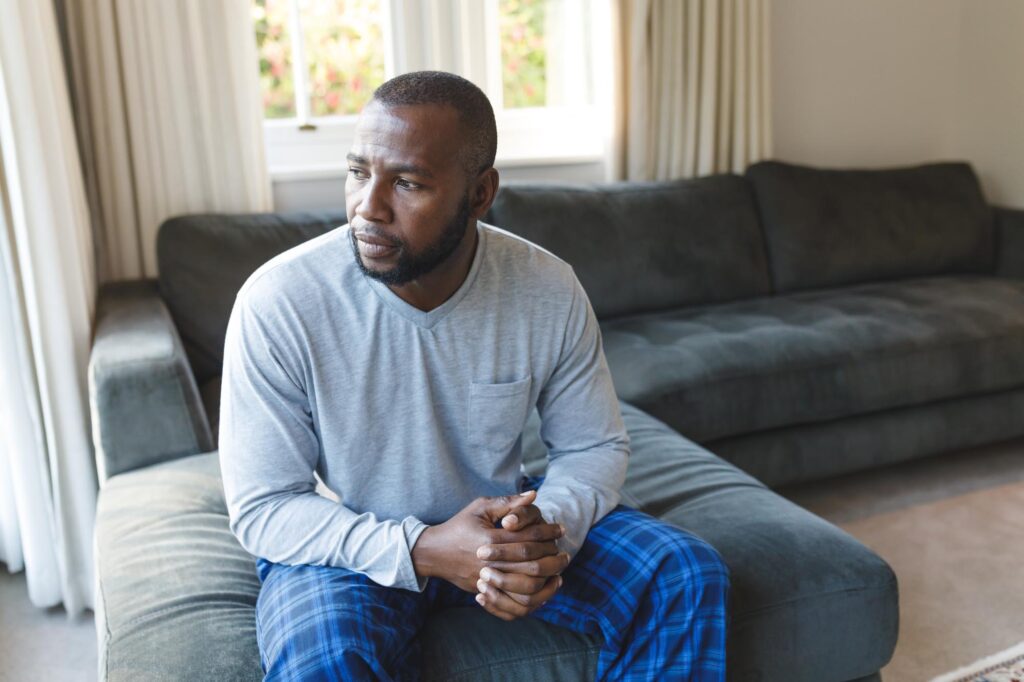Living with Obsessive-Compulsive Disorder (OCD) can feel like being trapped in an endless cycle of intrusive thoughts and repetitive, exhausting behaviors. If you’re seeking a way out, you’re not alone, and there is a clear path toward freedom. As you consider taking this brave step, one of the most pressing questions you likely have revolves around the OCD therapy timeline: When will I start to feel better? The good news is that evidence-based therapy offers relief, and understanding the typical progression provides the hope and clarity needed to begin.
Many people hesitate to seek treatment, wondering how long it might take to experience meaningful change. The journey to recovery is unique for each person, and understanding what to expect can help you take that crucial first step toward healing.
In this guide, we’ll explore:
- The typical timeline for seeing improvements with OCD therapy
- Different treatment approaches and their effectiveness
- Key factors that influence recovery time
- Strategies for maintaining progress after treatment
At Insight Recovery Mental Health in Winchester, MA, we understand the courage it takes to seek help. Our experienced therapists provide evidence-based OCD treatment tailored to your specific needs and circumstances. We create a supportive environment where you can work through challenges at your own pace while developing practical tools for long-term management.
Ready to break free from the grip of OCD? Let’s dive into what you can expect on your path to recovery, starting with a deeper understanding of this condition and its treatment options.
Understanding What is Obsessive-Compulsive Disorder? (OCD)

Obsessive-Compulsive Disorder is a complex mental health condition characterized by two primary components: obsessions and compulsions.
What are Obsessions?
Obsessions are unwanted, intrusive thoughts, images, or urges that create significant anxiety. These can include:
- Fear of contamination or germs
- Need for symmetry or exactness
- Disturbing violent or sexual thoughts
- Worry about harming loved ones
What are Compulsions?
Compulsions are repetitive behaviors or mental acts performed to reduce the anxiety caused by obsessions:
- Excessive hand washing or cleaning
- Checking locks, appliances, or switches repeatedly
- Counting, tapping, or repeating specific words
- Arranging items in precise patterns
Who does OCD affect?
OCD typically emerges during adolescence or early adulthood, with many individuals experiencing their first symptoms between ages 10 and 20. The condition affects people regardless of gender, culture, or background.
How does OCD impact daily life?
Living with OCD can significantly impact daily functioning. Simple tasks like leaving the house might take hours due to checking rituals. Work performance, relationships, and self-care often suffer as intrusive thoughts and time-consuming compulsions interfere with normal activities. The constant cycle of obsessions and compulsions can lead to emotional exhaustion, isolation, and decreased quality of life.
Related: Key Questions to Ask Before Starting OCD Therapy Journey
Overview of OCD Therapy Approaches
Research-backed OCD therapy approaches offer proven paths to recovery. Cognitive Behavioral Therapy (CBT) stands as a cornerstone treatment, with Exposure and Response Prevention (ERP) as its specialized form for OCD.
How ERP Therapy Works
ERP therapy works through a structured approach:
- Gradual exposure to anxiety-triggering situations
- Learning to resist compulsive responses
- Building tolerance to uncomfortable thoughts
- Practicing new coping strategies in real-life settings
Fears Addressed in the ERP Process
The ERP process might involve facing fears like:
- Touching doorknobs without washing hands
- Leaving the house without checking locks repeatedly
- Accepting intrusive thoughts without performing rituals
The Role of Medication in OCD Treatment
Medication plays a supportive role in OCD treatment. Selective Serotonin Reuptake Inhibitors (SSRIs) help regulate brain chemistry and reduce symptom intensity. Common medications include:
- Fluoxetine (Prozac)
- Sertraline (Zoloft)
- Paroxetine (Paxil)
Many people benefit from combining therapy and medication, creating a comprehensive treatment approach tailored to their specific needs.
What is the Typical Timeline for Seeing Results with OCD Therapy?
The journey through OCD therapy brings hope and measurable progress. Most people experience noticeable symptom improvement within 2-3 months of starting Exposure and Response Prevention (ERP) therapy when attending weekly sessions and practicing exercises consistently.
Your progress timeline might look like this:
- Weeks 1-2: Learning therapy techniques and building trust
- Weeks 3-6: Beginning to face easier triggers and developing resistance skills
- Weeks 7-12: Tackling more challenging exposures and seeing reduced anxiety
If medication is part of your treatment plan, SSRIs typically require 8-12 weeks to reach full effectiveness. Many people notice subtle improvements in their anxiety levels around week 4-6 of medication treatment.
Remember that healing isn’t linear – you might experience rapid improvements in some areas while others take more time. Some people need shorter treatment periods, while others benefit from longer-term support to achieve their goals. Your therapist will work with you to track progress and adjust your treatment plan as needed.
What are the Factors Influencing the Length of OCD Treatment?
The journey through OCD therapy is uniquely personal, with several key factors shaping the duration of treatment:
1. Symptom Severity and Complexity
- Mild to moderate symptoms may respond more quickly to treatment
- Severe symptoms often require extended therapy to build coping strategies
- Complex manifestations involving multiple types of obsessions need additional time
2. Therapy Engagement and Consistency
- Regular attendance at scheduled sessions accelerates progress
- Active participation in homework assignments between sessions
- Willingness to face challenging situations during exposure exercises
3. External Support Systems
- Strong family support can enhance treatment effectiveness
- Supportive work or school environments allow practice of new skills
- Access to OCD support groups provides additional reinforcement
4. Co-existing Conditions
- Depression or anxiety may need simultaneous treatment
- Trauma history might require integrated therapeutic approaches
- Substance use issues can impact treatment response time
Your personal combination of these factors creates a unique treatment timeline. Working closely with your therapist at Insight Recovery Mental Health helps develop a treatment plan that addresses your specific needs and circumstances.
How Do You Maintain Progress After OCD Therapy?

The skills you learn during OCD therapy become valuable tools for lifelong symptom management. Think of these strategies as your personal toolkit – ready to help you handle challenging situations and maintain your progress.
Key maintenance strategies include:
- Practicing ERP exercises independently when triggers arise
- Using mindfulness techniques to manage intrusive thoughts
- Maintaining a symptom journal to track patterns and progress
- Implementing stress management routines
Regular follow-up sessions play a crucial role in your long-term success. These check-ins help:
- Reinforce learned techniques
- Address new challenges early
- Adjust coping strategies as needed
- Prevent symptom relapse
Many clients find success by creating a personalized maintenance plan with their therapist. This plan might include scheduling periodic “booster” sessions, identifying early warning signs, and developing action steps for handling potential setbacks.
Remember – experiencing occasional intrusive thoughts or urges doesn’t mean your therapy hasn’t worked. It’s normal to have ups and downs, and your therapeutic tools help you navigate these fluctuations with confidence.
Starting OCD Therapy with Insight Recovery Mental Health
Taking the first step toward OCD treatment is an act of courage. At Insight Recovery Mental Health in Winchester, MA, we understand that OCD is far more than perfectionism—it’s a complex condition that affects your daily life, relationships, and emotional well-being.
Your Path to Recovery
We offer specialized OCD therapy through several evidence-based approaches:
- Exposure and Response Prevention (ERP): Our cornerstone treatment gradually exposes you to anxiety triggers while teaching you to resist compulsive responses
- Cognitive Behavioral Therapy (CBT): Learn to identify and reshape unhelpful thought patterns
- Mindfulness Techniques: Build resilience and learn to observe intrusive thoughts without acting on them
- Acceptance and Commitment Therapy (ACT): Develop skills to accept difficult thoughts while living according to your values
- Medication Management: When appropriate, we coordinate with prescribing professionals to complement your therapy
Your Journey Starts Here
Each person’s experience with OCD is unique, which is why we create individualized treatment plans tailored to your specific needs and circumstances. Our compassionate team provides a safe, judgment-free space where you can work toward breaking free from intrusive thoughts and compulsive behaviors.
Ready to reclaim control of your life? Contact Insight Recovery Mental Health at (866) 580-9784 or visit our message us to schedule your initial consultation. Let us help you build a future where OCD no longer dictates your choices.
Your recovery is possible. We’re here to guide you every step of the way.
FAQs (Frequently Asked Questions)
What is Obsessive-Compulsive Disorder (OCD) and how does it affect daily life?
Obsessive-Compulsive Disorder (OCD) is a mental health condition characterized by persistent obsessions—unwanted, intrusive thoughts—and compulsions, which are repetitive behaviors aimed at reducing distress. Typically emerging during puberty or early adulthood, OCD can significantly impact daily functioning and emotional well-being by causing distress and interfering with normal routines.
What are the primary therapy approaches used to treat OCD?
The main treatment methods for OCD include Cognitive Behavioral Therapy (CBT) with a focus on Exposure and Response Prevention (ERP), which involves gradual exposure to anxiety-provoking triggers while resisting compulsive behaviors. Complementary treatments may include medication such as selective serotonin reuptake inhibitors (SSRIs). Additionally, mindfulness-based techniques and Acceptance and Commitment Therapy (ACT) support managing distressing thoughts and promoting resilience.
How long does it typically take to see results from OCD therapy?
Significant symptom improvement is often observed within 2-3 months of starting ERP therapy. While CBT with ERP tends to show faster benefits, medication like SSRIs may take up to 12 weeks to reach full effectiveness. The timeline varies based on individual factors including therapy engagement and symptom severity.
What factors influence the length of OCD treatment?
The duration of OCD treatment depends on several factors such as the severity of symptoms, consistency in attending and participating in therapy sessions, the presence of coexisting mental health conditions, and the strength of social support systems. Personalized care plans at Insight Recovery Mental Health consider these elements to optimize recovery.
How can progress be maintained after completing OCD therapy?
Maintaining progress involves applying the skills learned during therapy for lifelong management of OCD symptoms. Follow-up sessions are important to reinforce therapeutic gains, prevent relapse, and provide ongoing support. Techniques like mindfulness and ACT continue to help individuals tolerate distress without engaging in compulsions.
Why choose Insight Recovery Mental Health for OCD therapy in Winchester, MA?
Insight Recovery Mental Health offers compassionate, evidence-based care tailored to each individual’s unique experience with OCD. Utilizing proven approaches such as ERP, CBT, mindfulness, ACT, and collaborative medication management when appropriate, our team supports clients through a gradual but achievable recovery process designed to reduce distress and improve quality of life.
Related: Starting OCD Therapy: What to Expect in Your First Sessions




